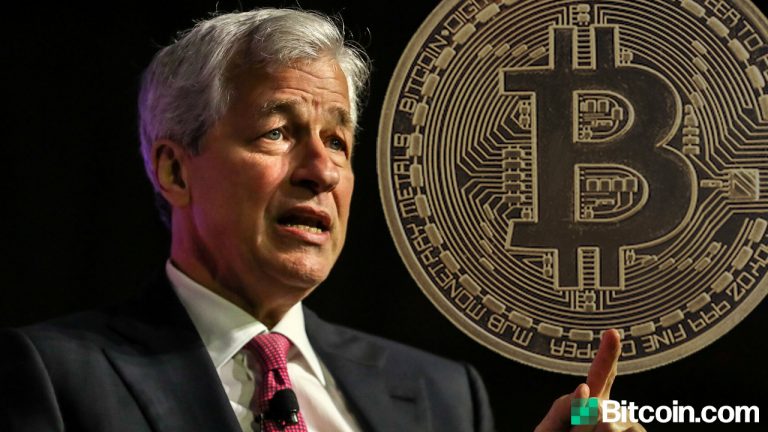
2022-2-9 03:00 |
As bitcoin reduces the traditional usage of financial advisors, their role may shift to help facilitate wealth preservation.
Many Bitcoiners may have a sour taste in their mouth when they think of financial advisors. Maybe it’s because they repeatedly tell their loved ones that Bitcoin is a ponzi scheme or worthless. Being wrong for years, and refusing to admit it the entire time, makes Bitcoiners hesitant to think highly of advisors.
And to be frank, many financial advisors likely don’t think very highly of Bitcoiners. Many advisors don’t buy into the HODL philosophy: “You think all you have to do is buy bitcoin and hold it for a decade and you will become fabulously wealthy? It can’t be that easy. I went to school and took all these tests proving how that can’t be true!”
But maybe it really is that easy for Bitcoiners. Traditional financial asset prices have gone parabolic over the last 18 months, and valuations are growing. Take a look at the broader stock market. Using the valuation metric known as the Shiller P/E ratio, stocks are the most expensive they’ve ever been with the exceptions being the months leading up to the Great Depression in 1929 and during the dotcom bubble of 2000. Real estate finds itself in a similar boat of elevated valuations. And don’t even get me started on fixed income.
All of this and more might be leading to the perfect investment case for bitcoin. Bitcoin, at a roughly $800 billion market cap at time of writing, is a puddle next to lakes and oceans of global assets. The number varies depending on who you ask, but let’s peg global assets at $500 trillion (conservatively). With bitcoin being the best store of value the world has ever seen, it’s not crazy to think it will continue gaining share in its addressable market — its dollar price per coin increasing at an impressive clip along the way.
So what’s the deal? Why does it seem like so few financial advisors are waking up to Bitcoin and instructing their clients on the actions they should take? Today I will discuss what may be holding financial advisors back and a look ahead to the future of the financial advisor role in a hyperbitcoinized world.
What’s Holding Back Advisors Now? Check The IncentivesFinancial advisors manage an estimated $90 trillion of global assets. The amount of these assets that fall under the bitcoin (or even the broader term “crypto”) umbrella is peanuts. In fact, I’ve anecdotally heard many clients don’t even bother to inform their financial advisor about their digital asset holdings. And why would they? According to the RIA Digital Assets Council, only 8% of financial advisors can adequately explain these assets.
To explain this fact, you must look at the incentives for a financial advisor to adopt Bitcoin into their practice. Right now, there aren’t very many.
Existing practices are chugging along just fine without itThe orange-pill process is a tedious oneRisks are involved when introducing a new and volatile asset into the mixA combination of stocks, bonds, and a handful of alternative funds that track precious metals or real estate is a financial advisor’s business. And business is good. The industry has undergone a large shift over the past couple of decades, into charging their clients percentage fees based on their assets under management (AUM), rather than charging commissions on each trade. As long as the markets keep rising, so do advisors’ paychecks. Look back on the stock market’s performance and you will realize that having a successful financial planning practice has been very lucrative. As the old saying goes, if it ain’t broke, don’t fix it.
Think about your own rabbit hole experience. How many dozens or even hundreds of hours have you spent consuming Bitcoin material? And you still wouldn’t consider yourself an expert. Now think about an advisor attempting to go through this process with an entire client base. Clients of advisors don’t need to be so orange-pilled that they insert laser eyes on their Twitter profiles, sure, but they also need to make sure that their clients know enough about bitcoin to HODL their stack, and also to abstain from threatening to sue when bitcoin inevitably enters a bear market. This is especially true if the client wasn’t fully “on board” in the first place.
Lastly, the bridge for advisors to incorporate bitcoin into their client holdings is still under construction. There are plenty of blueprints out there and it seems like I’m hearing about more solutions on a regular basis. As it stands now though, it’s hard to purchase real bitcoin UTXOs for a client and get paid for it as the advisor. I have hopes of this changing very soon, which is encouraging.
Why The Demand For Financial Advisors Is So High TodayIn a fiat world with inflation, high taxes and boom-and-bust cycles, you may need to be a professional at managing your assets properly or you need to hire someone to do it for you. Bitcoin and a sound money environment can heavily reduce the importance of being an expert just so you don’t lose all of your purchasing power before you die. This will force the financial advisor market to consolidate heavily.
Currently, financial advisors don’t have much opportunity cost to compete with. Opportunity cost, in this case, would be the cost of not investing in a “diversified portfolio.” Rather than invest, the other choice for millions is to hold on to their dollars in a bank account, free of volatility. Nearly everyone knows this is a losing strategy today, forcing the masses to invest in risk assets.
When that opportunity cost transitions from depreciating fiat to appreciating bitcoin, this will turn into a much more difficult cost-benefit analysis for advisors to overcome. A populace that can simply hold their currency without worry of debasement has substantially less demand for portfolio construction than those forced to invest their capital in risk assets just to outpace the rate of inflation.
The Bitcoin-Bull Financial AdvisorRent-seeking activities employed by many advisors will come to an end. Nihilistic index investing - throwing assets into a diversified portfolio with no purpose - will become less and less accepted. Buying bonds just because they are historically viewed as safe investments doesn’t make sense when most come with a negative real yield. And so on.
But there are truly great financial advisors out there now, who provide value outside of the percentage return printed on their clients’ statements, who thrive today and will continue to do so. These advisors not only know a thing or two about investments, but are also well-versed in estate planning, various types of insurance, and tax mitigation.
This sort of expertise is beneficial to the overall health of a financial plan. Knocking your investments out of the park doesn’t do much good if you fumble a taxable event or your assets don’t pass to your desired heir at death and the courts get involved. The great advisors work together with their clients’ tax accountants and attorneys to ensure the plan is firing on all cylinders.
I believe financial advisors will play a large role in onboarding the next tens of millions of users in the western world to the Bitcoin network. Advisors are the gatekeepers of a majority of their clients’ assets. The asymmetric investment opportunity provided by bitcoin could make for the ideal asset to complement - potentially even hedge - expensive stocks and fixed income.
Clients will start to seek out advice on how to best utilize their bitcoin stack. Advisors will be expected to clearly demonstrate their knowledge in a variety of areas:
· Does it make sense for clients to take out a mortgage using a portion of their stack as collateral?
· Will advisors be assisting their clients in multisig setups with a third-party provider?
· Should clients participate in peer-to-peer lending protocols to earn extra yield?
· Which mobile or desktop wallet makes the most sense for them?
A few concepts which advisors and the general population will need to be accustomed to down the road are portfolios denominated in satoshis (aka sats), securities trading on top of Bitcoin and/or sidechains, and “cash is trash” transitioning to “just stack sats,” to name a few.
And those are changes that I, for one, am very excited to experience.
I owe a massive thank you to Andy Flattery for providing feedback on this article. He is one of the great advisors that will survive and thrive.
This article should not be construed as a specific recommendation or investment advice. Always consult with your investment professional before making important investment decisions.
This is a guest post by Trent Dudenhoeffer. Opinions expressed are entirely their own and do not necessarily reflect those of BTC, Inc. or Bitcoin Magazine.
origin »Bitcoin price in Telegram @btc_price_every_hour
Formosa Financial (FMF) íà Currencies.ru
|
|















